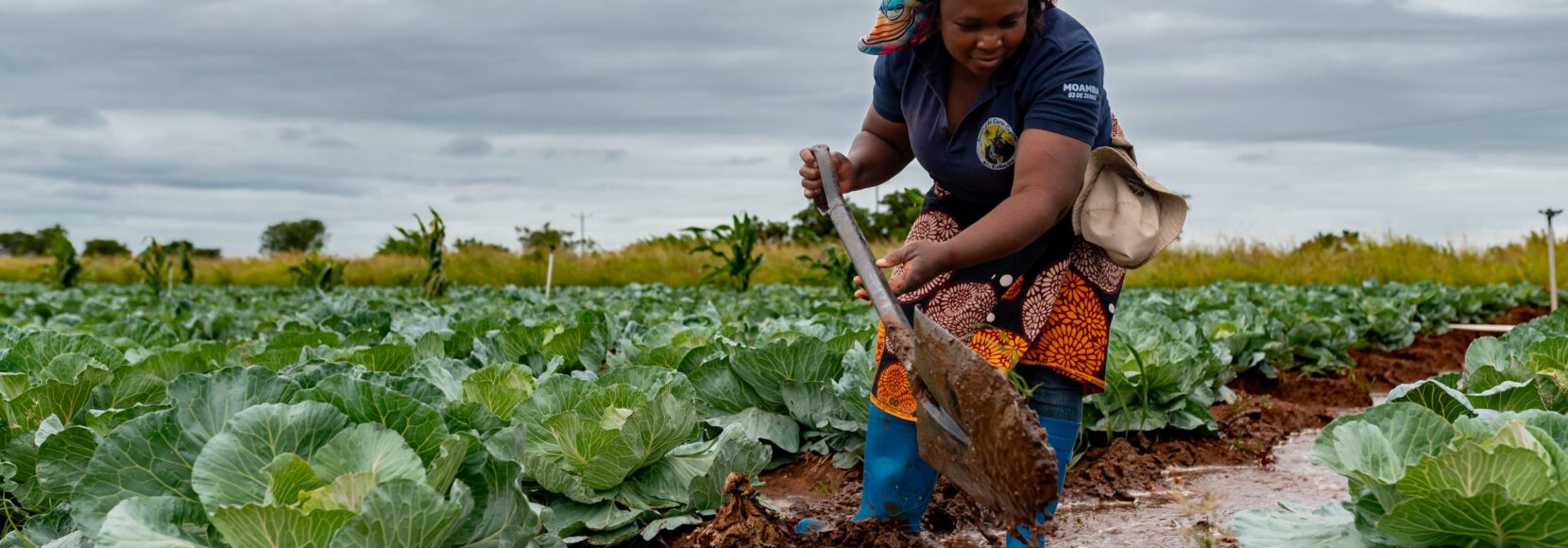
Video Spotlight: Revolutionizing African Food Systems
Building Resilience and Prosperity through Collaboration and Innovation
In today’s interconnected world, the strength and sustainability of African food systems are heavily reliant on small food businesses like AA Nafaka Store Supply Ltd., a woman-owned enterprise in Tanzania. These businesses serve as the backbone of the food supply chain, providing nutritious food to consumers while supporting smallholder farmers. However, recent challenges, including the COVID-19 pandemic, have highlighted the need for innovative solutions to bolster the resilience of small food businesses and, by extension, African food systems as a whole.
The Crucial Role of Small Food Businesses in African Food Systems
The success of African food systems depends on many food businesses in the middle of the value chain. They can process raw materials into consumer-ready products like flour, rice, and cooking oil, with many companies also fortifying staple foods with vitamins and minerals that help fight malnutrition. In addition, these food businesses provide a steady market for the harvests of smallholder farmers, improving these farmers’ incomes and livelihoods. Millions of people across the continent now have greater food security thanks to these mutually beneficial relationships.
Navigating Challenges in the Wake of COVID-19
Small food businesses like AA Nafaka – a business founded by Severina Paul Mwakateba in 2012 – were severely impacted by the COVID-19 pandemic. They needed help to get raw materials and products to customers due to transportation limitations and school closings. Consequently, their struggles have rippled through the entire food system, affecting smallholder farmers, consumers, and businesses.
In 2019, AA Nafaka made over $60,000 in sales, with schools making up a significant segment of its customer base. The company had the opportunity to expand even further in 2019 due to the installation of additional milling equipment. However, the COVID-19 pandemic would confront the company with serious challenges.
With transportation restrictions and school closures, the company experienced product distribution difficulties and the loss of an essential part of its market. With the resulting drop in sales, AA Nafaka had to lay off seven of its employees and decrease its purchases from farmers and aggregators by 60%.
Collaborative Solutions for Resilient Food Systems
With the pandemic threatening the operations and survival of food businesses like AA Nafaka, the Visa Foundation stepped in in 2021 to provide resiliency grants to eight African food processors. These grants were complemented by technical assistance from the Coalition for Farmer-Allied Intermediaries (CFAI), a group of pioneering organizations, including TechnoServe, that work with over 600 African food companies to strengthen the continent’s food systems.
TechnoServe and Partners in Food Solutions provided technical assistance to these firms through the Alliance for Inclusive and Nutritious Food Processing program funded by USAID’s Feed the Future initiative. As a result of this partnership, these African food businesses increased their sales by 70%, supporting stable markets for 1,500 farmers and creating new employment opportunities for nearly 100 workers.
Empowering Small Food Businesses: Holistic Assistance during Challenging Times
TechnoServe, a nonprofit organization focused on reducing poverty through business solutions, has played a crucial role in supporting small food businesses like AA Nafaka during these trying times. TechnoServe’s business advisors worked with AA Nafaka’s managers to help improve the company’s sourcing and marketing strategies. Like many small food businesses, the company needed to shift its approach to survive the volatile market conditions.
TechnoServe also helped their team develop an inclusive business plan, enabling the company to purchase its crops. Our staff also helped the company improve its processing facilities’ utilization rate and adapt its marketing strategy.
A Bright Future for African Food Systems
The AA Nafaka team persevered through the challenges of the pandemic and even rehired three employees who had been laid off. The company also purchased more than $20,000 of crops directly from 112 smallholder farmers, 80% of whom were women. And it purchased roughly the same amount from an aggregator that bought directly from smallholder farmers.
With the support of organizations like TechnoServe and initiatives like the CFAI, small food businesses like AA Nafaka have been able to bounce back from the challenges of the COVID-19 pandemic. As a result, these enterprises are better equipped to adapt to future crises, ensuring African food systems’ ongoing strength and sustainability.
The Power of Inclusive Sourcing and Business Models
By focusing on inclusive sourcing models that prioritize organized farmer groups, the livelihoods of smallholder farmers that are often disproportionately affected by disruptions in the food system can be greatly improved.
Inclusive sourcing and business models prioritize farmers by:
- Ensuring fair prices
- Providing market access
- Offering capacity-building support
- Facilitating access to resources
- Strengthening farmer organizations
- Fostering long-term partnerships
- Promoting environmental sustainability.
By prioritizing farmers in these ways, these models aim to improve their livelihoods, enhance their resilience, and contribute to sustainable agricultural development.
Embracing Digital Technology for a Connected Food System
From access to information and knowledge to financial services and mobile banking, digital technology offers enormous potential for revolutionizing African food systems, making them more efficient, resilient, and inclusive. By leveraging digital tools like supply chain management and traceability, data-driven decision-making platforms, and digital extension services, small food businesses, and their stakeholders can overcome barriers and work together toward a more robust and sustainable food system. These technologies can have a huge hand in increasing food system transparency and resilience by tracking food supply chains, collecting secure data, connecting small-scale producers, and increasing their access to networks and services.
For instance, TechnoServe has been implementing polygon mapping for its large agricultural programs for the past two years. Polygon mapping involves taking a smartphone with Google Maps or other GPS-enabled apps for offline use and walking around the boundaries of a farm to map the farm perimeter.
The Collective Impact of Small Food Businesses
Small food businesses play a crucial role in African food systems by providing nutritious food, supporting smallholder farmers, and contributing to economic development and food security. However, the COVID-19 pandemic highlighted the vulnerabilities of these businesses and the need for innovative solutions to strengthen their resilience. Collaborative efforts from organizations like TechnoServe have demonstrated the power of inclusive sourcing models and the potential for digital technology to transform African food systems.
With continued support and investment, small food businesses can thrive, adapt to future challenges, and contribute to African food systems’ ongoing strength and sustainability, benefiting farmers, consumers, and communities across the continent.





